China to Indonesia Freight Forwarder
The Ultimate Guide
Shipping from China to Indonesia: The Ultimate Guide 2024 September (Updated)
Table of Contents
Indonesia and China have a well-established trade partnership, with China being Indonesia’s largest trading partner. In 2022, trade between the two countries reached over $120 billion, driven primarily by China’s exports of electronics, textiles, machinery, and automotive parts to Indonesia. For businesses in Indonesia importing goods from China, optimizing the shipping process can lead to substantial cost savings, faster deliveries, and smoother logistics operations.
This guide provides a detailed and comprehensive overview of the shipping process between China and Indonesia, covering freight costs, transit times, customs clearance, and best practices. Whether you’re a first-time importer or an experienced business owner, this guide will help you streamline your logistics operations, avoid common pitfalls, and maximize efficiency when importing goods from China.
September 2024 Shipping Update: From China to Indonesia
Part 1: Shipping Price Comparison
China and Indonesia are connected by numerous sea and air routes, making shipping between the two nations relatively affordable and efficient. Below is a comparison of the current shipping costs for sea, air, and express freight.
| Shipping Mode | Price Range (USD) | Characteristics |
|---|---|---|
| FCL (20-foot container) | $650 – $1,000 | Cost-effective for bulk goods; most suitable for high-volume shipments. |
| FCL (40-foot container) | $1,000 – $1,500 | Larger volume shipments; lower cost per unit compared to a 20-foot container. |
| LCL (Less than Container Load) | $60 – $100 per CBM | Best for smaller shipments that don’t require a full container. |
| Air Freight (1000kgs+) to CGK | $2.00 – $3.00 per kg | Fast but more expensive. Ideal for high-value or time-sensitive goods. |
| Express Courier (DHL, UPS, etc.) | $5.50 – $8.00 per kg | Fastest shipping option, ideal for urgent or small parcels. Delivery typically within 1-3 days. |
Part 2: Detailed Analysis of Recent Shipping Trends
Cost Stability: Over the past quarter, shipping prices between China and Indonesia have been stable due to balanced supply and demand. Sea freight, particularly FCL and LCL, remains the most economical option for large volumes of goods, while air freight costs remain higher due to fuel surcharges and limited cargo space.
Transit Times: For sea freight, FCL shipments typically take 7-14 days, while LCL can take 10-15 days. Air freight delivers goods in 2-5 days, while express services complete deliveries within 1-3 days.
Capacity and Space Availability: Major shipping lines servicing routes between China and Indonesia have sufficient capacity, but booking early is advisable during peak seasons (Chinese New Year, Indonesian holidays) when space may become limited.
Customs Delays: Customs clearance can sometimes cause delays, particularly in Indonesian ports like Tanjung Priok, where incomplete documentation or high congestion may slow down the process. Hiring a customs broker or experienced freight forwarder can help avoid unnecessary delays.
2024 Outlook: Shipping rates are expected to remain relatively stable throughout 2024, but businesses should anticipate slight surcharges during peak seasons, such as Chinese New Year or Indonesia’s Ramadan period. Planning and booking shipments in advance during these times can help avoid extra costs and delays.
Freight Shipping Cost from China to Indonesia for September 2024
Shipping costs can vary significantly based on the mode of transport, size of the shipment, and the final destination. Below is a breakdown of the expected costs for different shipping methods:
Overview of Costs by Shipping Mode
| Shipping Mode | Shipping Cost (USD) | Characteristics |
|---|---|---|
| FCL (Full Container Load) 20-foot container | $650 – $1,000 | Most cost-effective for bulk goods. The larger volume helps reduce the cost per unit. |
| FCL (Full Container Load) 40-foot container | $1,000 – $1,500 | Best for very large shipments. Lower per-unit costs make it suitable for large-volume orders. |
| LCL (Less than Container Load) | $60 – $100 per CBM | Ideal for smaller shipments; longer transit times due to consolidation and deconsolidation processes. |
| Air Freight (1000kgs+) to CGK | $2.00 – $3.00 per kg | Fast but more expensive. Perfect for high-value or time-sensitive goods. |
| Express Courier (DHL, UPS) | $5.50 – $8.00 per kg | Fastest option. Best for small parcels, urgent deliveries, and sensitive shipments. |
Understanding Import Tax, Duties, and VAT Costs
When importing goods from China into Indonesia, importers must account for import duties, VAT (Value Added Tax), and other possible fees. Below is a breakdown of import duties and VAT rates for popular product categories:
| Product | Custom Duties (%) | VAT (%) |
|---|---|---|
| Electronics (e.g., mobile phones) | 0% | 11% |
| Textiles and apparel | 5% | 11% |
| Toys | 3% | 11% |
| Furniture | 5% | 11% |
| Plastic products | 7% | 11% |
| Machinery | 2% | 11% |
| Footwear | 10% | 11% |
| Vehicles (including parts) | 10% | 11% |
| Optical instruments | 3.5% | 11% |
| Watches and clocks | 5% | 11% |
| Bicycles | 14% | 11% |
| Glassware | 10% | 11% |
| Musical instruments | 3.7% | 11% |
Key Considerations:
- CIF Value: Duties and VAT are calculated based on the CIF (Cost, Insurance, and Freight) value, which includes the cost of goods plus shipping and insurance.
- HS Code Classification: Ensure goods are classified correctly using the appropriate Harmonized System (HS) code to avoid incorrect duties or customs clearance delays.
- Licenses and Permits: Certain products, such as pharmaceuticals or hazardous chemicals, require special licenses or permits before import into Indonesia.
Navigating Legal Compliance in International Shipping
Understanding Indonesia’s import regulations is crucial for businesses importing goods from China. Non-compliance can lead to delays, fines, or even confiscation of goods. Here’s a closer look at the key compliance requirements:
HS Codes: Proper classification of goods using the correct Harmonized System (HS) codes is essential to avoid incorrect duties or potential penalties. Incorrectly classified goods may be subject to fines or delays at customs.
Product Certification and Labeling: Some goods, particularly electronics, toys, textiles, and chemicals, require specific certifications in Indonesia. Electronics may need certification from Indonesia’s National Standard (SNI), while food and beverage products must meet local safety and labeling standards (including Bahasa Indonesia labels).
Restricted Goods: Some goods are restricted or prohibited from being imported into Indonesia. These include hazardous chemicals, certain electronics, firearms, and counterfeit items. Importers must verify whether their products fall under restricted categories and, if necessary, obtain the required licenses.
Customs Documentation: Ensure all customs documentation is complete and accurate, including the commercial invoice, packing list, bill of lading, and certificate of origin. Incomplete or incorrect documents can cause customs delays and may result in fines or penalties.
Hiring a Customs Broker: Working with a professional customs broker can help ensure that all required documentation is submitted correctly and that goods clear customs without delays. Brokers are especially useful when importing restricted or regulated goods.
Shipping from China to Indonesia Transit Time
The time it takes to ship goods from China to Indonesia depends on the mode of transportation. Below is a comparison of transit times for the different shipping options.
Comparison of Transit Times Across Shipping Modes
| Shipping Mode | Transit Time (Days) |
|---|---|
| Sea Freight (FCL) | 7-14 days |
| Sea Freight (LCL) | 10-15 days |
| Air Freight | 2-5 days |
| Express Courier | 1-3 days |
Factors Affecting Transit Times and Mitigation Strategies
Port Congestion: Both Chinese and Indonesian ports can experience congestion during peak periods, such as during Chinese New Year or major Indonesian holidays. Importers should book shipments well in advance during these times to avoid delays.
Customs Delays: Delays at customs can be caused by incomplete or incorrect documentation, incorrect HS code classification, or restricted goods. Working with a freight forwarder or customs broker helps ensure a smoother customs clearance process.
Weather Conditions: The South China Sea is prone to severe weather conditions, such as typhoons, which can delay sea freight. Businesses shipping during storm seasons should consider air freight or plan for possible delays in transit times.
Peak Season Shipping: Shipping demand typically increases during peak seasons, such as before Chinese New Year or Indonesian Ramadan. Importers should book early to secure space and avoid delays or peak season surcharges.
Door-to-door shipping from China to Indonesia
Door-to-door shipping offers businesses a hassle-free solution, where the freight forwarder manages the entire logistics chain—from pickup in China to delivery in Indonesia. Here’s why many importers prefer this service:
Advantages of Door-to-Door Services
Comprehensive Management: With door-to-door services, the freight forwarder handles all aspects of the logistics process, including pickup, transportation, customs clearance, and delivery. This reduces the administrative burden on the importer.
Cost Efficiency: While door-to-door services may come with higher initial costs, they reduce overall expenses by eliminating the need for multiple logistics providers. This results in a streamlined supply chain with fewer fees for handling, warehousing, or customs.
Simplified Customs Process: Freight forwarders offering door-to-door services typically include customs clearance as part of the package. They ensure that all necessary documentation is filed correctly, reducing the risk of delays at customs.
Tracking and Transparency: Most door-to-door services offer real-time tracking, allowing importers to monitor their shipment at every stage of the journey. This transparency reduces uncertainty and provides peace of mind.
Reduced Risk of Damage: Fewer intermediaries handling the goods means a reduced risk of damage during transit. Door-to-door shipping is particularly beneficial for fragile or high-value goods that require careful handling.
How to Choose the Right Door-to-Door Service
Experience and Reputation: Choose a freight forwarder with extensive experience in managing door-to-door shipments between China and Indonesia. Positive customer reviews and testimonials are a good indicator of reliability.
Full Range of Services: Ensure the freight forwarder offers a comprehensive suite of services, including warehousing, customs clearance, and delivery. A one-stop service provider can simplify your logistics and improve efficiency.
Transparent Pricing: Opt for a provider that offers clear, upfront pricing with no hidden fees. Be sure to ask for a detailed quote that includes all potential costs, such as customs duties, taxes, and delivery charges.
Tracking and Communication: Look for a freight forwarder that offers advanced tracking tools, so you can monitor your shipment’s progress. Regular communication and updates are also important to ensure smooth delivery.
Customer Support: A strong customer support team is crucial for resolving any issues that may arise during transit. Choose a provider that offers 24/7 support to handle any questions or problems promptly.
Sea Freight from China to Indonesia (September 2024)
Sea freight is the most popular and cost-effective shipping option for businesses moving large volumes of goods from China to Indonesia. Below is a detailed breakdown of sea freight costs and transit times:
| Shipping Mode | Unit | Price Range (USD) | Transit Time (Days) |
|---|---|---|---|
| FCL (20-foot container) | Per container | $650 – $1,000 | 7-14 days |
| FCL (40-foot container) | Per container | $1,000 – $1,500 | 7-14 days |
| LCL (Less than Container Load) | Per cubic meter (CBM) | $60 – $100 | 10-15 days |
Benefits of LCL and FCL Shipping
LCL Shipping: Less-than-Container Load (LCL) shipping is ideal for businesses that do not need to fill an entire container. Multiple shipments are consolidated into one container, allowing for cost-sharing. However, transit times may be longer due to consolidation and deconsolidation.
FCL Shipping: Full Container Load (FCL) shipping is best suited for large-volume shipments. Since the entire container is dedicated to one shipper, it reduces handling and transit times compared to LCL shipments. FCL shipping is also more cost-effective for larger shipments.
Cost Savings: FCL shipments typically offer lower per-unit costs than LCL shipments, as there is no need for consolidation. LCL, however, is more affordable for businesses with smaller shipments that do not justify the cost of a full container.
Less Risk of Damage: FCL shipments undergo fewer handling points than LCL, reducing the risk of damage or loss. LCL shipments, which involve consolidation, are subject to more handling as goods are loaded and unloaded alongside other cargo.
Short Transit Times: Due to the relatively short distance between China and Indonesia, sea freight is an efficient option for large and small shipments alike. Transit times typically range between 7-14 days for FCL and 10-15 days for LCL.
Selecting a Sea Freight Forwarder and Top Shipping Routes
Choosing the right sea freight forwarder can make a significant difference in terms of cost, transit times, and overall efficiency. Here’s how to choose the best forwarder and an overview of the key shipping routes from China to Indonesia:
Key Considerations When Selecting a Sea Freight Forwarder
Established Network: Choose a forwarder with a strong network of partners in both China and Indonesia. This ensures that the forwarder has relationships with shipping lines, port authorities, and customs officials, reducing the likelihood of delays.
Experience with China-Indonesia Trade: Look for a forwarder with significant experience shipping between China and Indonesia. They should be familiar with customs regulations, shipping routes, and potential bottlenecks.
Competitive Rates: Ensure the forwarder offers competitive pricing for both FCL and LCL shipments. Transparent pricing with no hidden fees is crucial, so ask for a detailed quote that includes all potential costs.
Tracking and Communication: The forwarder should provide advanced tracking tools and maintain regular communication throughout the shipping process. This helps ensure that you are always informed about the status of your shipment.
Customs Clearance Expertise: A good freight forwarder will have deep knowledge of the customs clearance process in both China and Indonesia. This ensures that your shipment moves through customs smoothly and avoids costly delays.
Air Freight from China to Indonesia (September 2024)
For businesses requiring fast delivery, air freight is the fastest shipping option between China and Indonesia. Here’s a breakdown of air freight costs and transit times:
| Shipping Mode | Unit | Price Range (USD) | Transit Time (Days) |
|---|---|---|---|
| Air Freight (1000kgs+) | Per kg | $2.00 – $3.00 | 2-5 days |
Advantages and Considerations of Air Freight
Speed: Air freight is the fastest shipping option available, with goods typically arriving in Indonesia within 2-5 days. This makes it ideal for time-sensitive shipments, such as electronics, pharmaceuticals, or high-demand consumer goods.
Reliability: Flights operate on tight schedules, making air freight a highly reliable option for urgent deliveries. Unlike sea freight, air freight is less likely to be affected by weather or port congestion.
Security: Air freight is generally more secure than sea freight due to strict airport security protocols. This reduces the risk of theft or damage, making it the preferred option for high-value goods.
Higher Cost: Air freight is significantly more expensive than sea freight, so it is best suited for high-value goods or goods that need to be delivered urgently. Businesses shipping large or bulky items may find sea freight more economical.
Weight and Size Limitations: Air freight is ideal for smaller, lighter shipments due to weight and size restrictions on cargo planes. For larger, heavier goods, sea freight may be a better option.
Choosing the Right Air Freight Forwarder
Air Cargo Expertise: Choose a forwarder with significant experience in handling air freight. They should be familiar with the security protocols, documentation requirements, and customs clearance procedures specific to air cargo.
Strong Carrier Relationships: A good air freight forwarder will have established relationships with major airlines. This allows them to secure space on flights, even during peak periods, and offer competitive pricing.
Tracking and Communication: Look for a forwarder that provides real-time tracking tools and maintains regular communication throughout the shipping process. This will allow you to monitor your shipment’s progress and address any potential issues promptly.
Customs Clearance Expertise: A good air freight forwarder should have extensive knowledge of customs regulations in both China and Indonesia. This will ensure that your shipment clears customs quickly and without delays.
Flexible Services: Choose a forwarder that offers flexible service options, such as express air freight for urgent shipments or more economical options for less time-sensitive goods.
Express Shipping from China to Indonesia
For businesses requiring the fastest possible delivery, express shipping is the best option. Major carriers, such as DHL, UPS, and FedEx, offer express services that deliver goods quickly, with comprehensive tracking and customs clearance included.
| Shipping Method | Unit (kg) | Price Range (USD) | Transit Time (Days) |
|---|---|---|---|
| Express Courier (DHL, UPS, FedEx) | Per kg | $5.50 – $8.00 | 1-3 days |
Benefits and Use Cases for Express Shipping
Urgent Deliveries: Express shipping is the fastest option, typically delivering goods within 1-3 days. This is ideal for businesses shipping urgent samples, replacement parts, or time-sensitive orders.
Small Parcels: Express shipping is most cost-effective for small, lightweight parcels. Many e-commerce businesses use express services to deliver orders directly to customers in Indonesia.
Real-Time Tracking: Express services typically offer advanced tracking tools that allow businesses to monitor the progress of their shipment in real-time. This transparency is especially useful for time-sensitive goods.
Customs Handling: Major express carriers, such as DHL and UPS, handle customs clearance as part of their service, reducing the administrative burden on importers and helping to minimize delays.
Door-to-Door Delivery: Express shipping services typically include door-to-door delivery, ensuring that goods are delivered directly to the recipient without the need for additional handling.
Key Ports in China and Indonesia for Shipping
The following is a list of the key ports involved in shipping goods between China and Indonesia, along with their strategic advantages:
| Country | Port | Advantages | Strategic Importance |
|---|---|---|---|
| China | Shanghai | Largest port in the world. Handles a significant portion of Indonesia-bound cargo. | Essential for both FCL and LCL shipments to Indonesia. |
| China | Ningbo-Zhoushan | Major hub for electronics and industrial goods. | Key for handling a high volume of exports, including industrial goods. |
| China | Shenzhen | Tech and consumer goods hub. Ideal for e-commerce. | Important for quick shipments of consumer goods to Indonesia. |
| Indonesia | Jakarta (Tanjung Priok) | Largest port in Indonesia. Key entry point for Chinese imports. | Handles the majority of containerized goods entering Indonesia. |
| Indonesia | Surabaya (Tanjung Perak) | East Java’s main port and a crucial transshipment hub. | Critical for large volumes of sea freight, especially from East Asia. |
| Indonesia | Belawan | Sumatra’s key port, serving northern Indonesia. | Important for distributing goods across Sumatra and other western regions. |
Major Routes from China to Indonesia
The primary sea routes between China and Indonesia pass through the South China Sea, linking major Chinese ports such as Shanghai, Ningbo, and Shenzhen with Indonesian ports like Jakarta, Surabaya, and Belawan. The short distance between the two nations allows for efficient sea freight transit times, ranging from 7-15 days depending on the shipment size and method.
Air freight routes depart from major airports in China, such as Shanghai Pudong International Airport (PVG), Beijing Capital International Airport (PEK), and Guangzhou Baiyun International Airport (CAN), and arrive at key Indonesian airports such as Soekarno-Hatta International Airport (CGK) in Jakarta and Juanda International Airport (SUB) in Surabaya.
Freight Forwarders from China to Indonesia
Freight forwarders play a crucial role in the logistics process, managing transportation, customs clearance, and delivery for businesses importing goods from China to Indonesia. Here’s how to choose the right freight forwarder for your needs:
Role of Freight Forwarders in the Shipping Process
Freight forwarders act as intermediaries between the shipper and carriers, managing all aspects of the shipping process. They arrange transportation, handle documentation, and ensure compliance with customs regulations in both China and Indonesia.
Selecting the Right Freight Forwarder for Your Needs
Global Network: Choose a forwarder with a strong network in both China and Indonesia. This ensures seamless coordination between different stages of the shipping process and timely delivery of goods.
Experience with China-Indonesia Trade: Select a forwarder with experience shipping between China and Indonesia. They should be familiar with the customs regulations, shipping routes, and any potential challenges that may arise.
Transparent Pricing: Look for a forwarder that offers clear, upfront pricing with no hidden fees. Ask for a detailed quote that includes all potential costs, such as customs duties, handling fees, and final delivery charges.
Flexibility in Service: Choose a forwarder that offers flexible services based on your specific shipping needs, whether you are shipping full containers (FCL), smaller shipments (LCL), or using air freight or express courier services.
Customs Clearance Expertise: Ensure that the forwarder has deep knowledge of customs regulations in both China and Indonesia, as this will help ensure that your goods clear customs quickly and without delays.
Tracking and Communication: A good forwarder should provide real-time tracking tools and maintain regular communication throughout the shipping process, so you can stay informed of your shipment’s progress.
How to Ship from China to Indonesia: A Step-by-Step Guide
Prepare Your Shipment:
- Documentation: Ensure all export and import documents are completed, including the bill of lading, commercial invoice, packing list, and certificate of origin.
- Packaging: Use durable materials to package your goods securely, especially for fragile or high-value items.
- Labeling: Clearly label all packages with product details, destination, and handling instructions.
Book Freight:
- Choose the appropriate shipping method (FCL, LCL, air freight, or express courier) based on your budget, shipment size, and delivery timeframe.
- Contact a reliable freight forwarder to manage the logistics of your shipment.
Customs Clearance:
- Ensure all customs documentation is correctly prepared and submitted for both Chinese and Indonesian customs authorities.
- Pay all necessary duties, taxes, and VAT to ensure smooth importation into Indonesia.
Track Your Shipment:
- Use the tracking tools provided by your forwarder or carrier to monitor the progress of your shipment and address any issues that arise.
Receive Your Goods:
- Upon arrival in Indonesia, arrange for final delivery to your warehouse or destination. Ensure that goods are handled carefully to avoid damage.
Navigating Customs and Tracking Your Shipment
Required Documents: Make sure that all required documents (bill of lading, commercial invoice, packing list, and certificate of origin) are correctly completed to avoid customs delays.
Customs Compliance: Work with a freight forwarder that understands Indonesian customs regulations to ensure smooth clearance. Incorrect documentation or misclassified goods can result in delays and fines.
Tracking Tools: Use tracking tools provided by your freight forwarder or carrier to monitor your shipment’s progress. Stay proactive by following the shipment and anticipating potential delays.
Alibaba and Shipping: Streamlining the Process
Alibaba is a popular platform for sourcing products from China, and it offers integrated logistics solutions to simplify the shipping process. Here’s how to use Alibaba to optimize your logistics when importing goods from China to Indonesia:
Leveraging Alibaba for Efficient LCL, FCL, and Door-to-Door Shipping
Alibaba’s verified suppliers and logistics partners offer a range of shipping solutions for businesses importing goods from China. Whether you are shipping small quantities via LCL or large volumes via FCL, Alibaba provides logistics options tailored to your needs.
Tips for Reducing Costs and Enhancing Efficiency through Alibaba
Bulk Orders: Many suppliers on Alibaba offer discounts for bulk orders, which can reduce the overall shipping cost. Consider consolidating your orders to take advantage of these savings.
Shipping Consolidation: If you are shipping smaller quantities, consolidating shipments with other buyers can reduce the cost of LCL shipping. Alibaba’s platform allows buyers to coordinate shipments efficiently.
Customizable Shipping Options: Alibaba allows buyers to customize shipping preferences, whether opting for sea freight, air freight, or express courier services. Choose the option that best fits your timeline and budget.
Verified Suppliers: Always check supplier ratings and reviews on Alibaba before placing an order. Verified suppliers are more likely to offer reliable shipping services and on-time deliveries.
Restricted & Prohibited Items for Shipping from China to Indonesia
Some goods are restricted or prohibited from being shipped from China to Indonesia due to safety, legal, or environmental reasons. Below is a list of restricted and prohibited items:
| Product Category | Restricted/Prohibited |
|---|---|
| Firearms | Prohibited |
| Hazardous Chemicals | Restricted |
| Food and Beverage Products | Restricted |
| Animal Products | Prohibited |
| Perishables | Restricted |
| Pharmaceuticals | Restricted |
| Plants and Seeds | Restricted |
| Pornographic Materials | Prohibited |
| Counterfeit Goods | Prohibited |
| Cultural Artifacts | Restricted |
| Live Animals | Prohibited |
| Tobacco Products | Restricted |
| Explosives | Prohibited |
| Certain Electronic Devices | Restricted |
| Alcohol | Restricted |
FAQ: Shipping from China to Indonesia
How long does shipping from China to Indonesia take?
- Sea freight typically takes 7-15 days, depending on whether it’s FCL or LCL. Air freight takes 2-5 days, while express shipping takes 1-3 days.
What are the main shipping options from China to Indonesia?
- The main shipping options include sea freight (FCL, LCL), air freight, and express courier services.
How do I choose the right freight forwarder for my shipping needs?
- Look for a forwarder with experience in China-Indonesia trade, strong networks, transparent pricing, and excellent customer service.
What documents are required for shipping goods from China to Indonesia?
- Key documents include the bill of lading, commercial invoice, packing list, and certificate of origin.
What is the importance of packaging and labeling when shipping from China to Indonesia?
- Proper packaging prevents damage during transit, while accurate labeling ensures smooth customs clearance.
How does customs clearance work when importing from China to Indonesia?
- Customs clearance involves submitting all required documents, paying duties and taxes, and ensuring compliance with Indonesian regulations.
What are the advantages of using door-to-door shipping services?
- Door-to-door services offer convenience, cost-efficiency, tracking, and simplified customs clearance.
How can I track my shipment from China to Indonesia?
- Use tracking tools provided by your freight forwarder or carrier to monitor your shipment’s progress in real-time.
Conclusion:
Shipping from China to Indonesia can be a straightforward process if businesses understand the logistics options, customs regulations, and transit times involved. By following this guide, Indonesian importers can optimize their logistics strategies, reduce costs, and ensure timely deliveries. Whether using sea freight, air freight, or express courier services, working with a reliable freight forwarder like Mbmlog can simplify the shipping process and ensure the safe, efficient transportation of goods.
At Mbmlog, we offer comprehensive logistics solutions tailored to your specific needs. Our door-to-door services, competitive pricing, and expert team ensure that your goods are delivered safely and on schedule, while our real-time tracking tools keep you informed throughout the shipping process. Let us handle the complexities of international shipping, so you can focus on growing your business.
Send Your Enquiry Now
Our Services
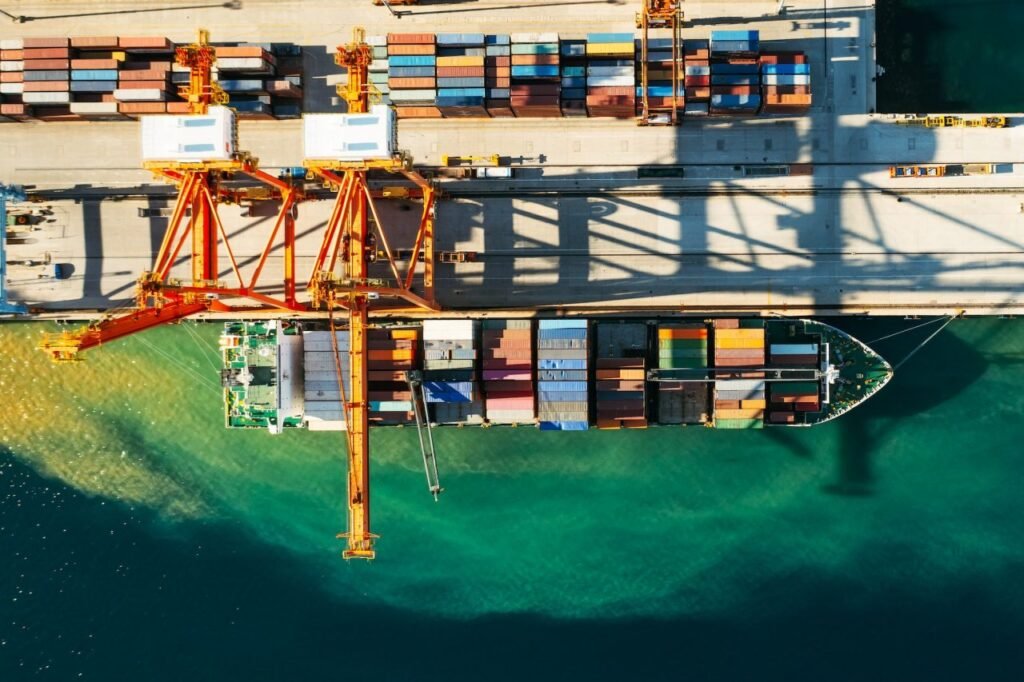
Sea Freight Shipping from China to Indonesia
Enjoy cost savings with our high-capacity sea freight options, ideal for large shipments without the rush.
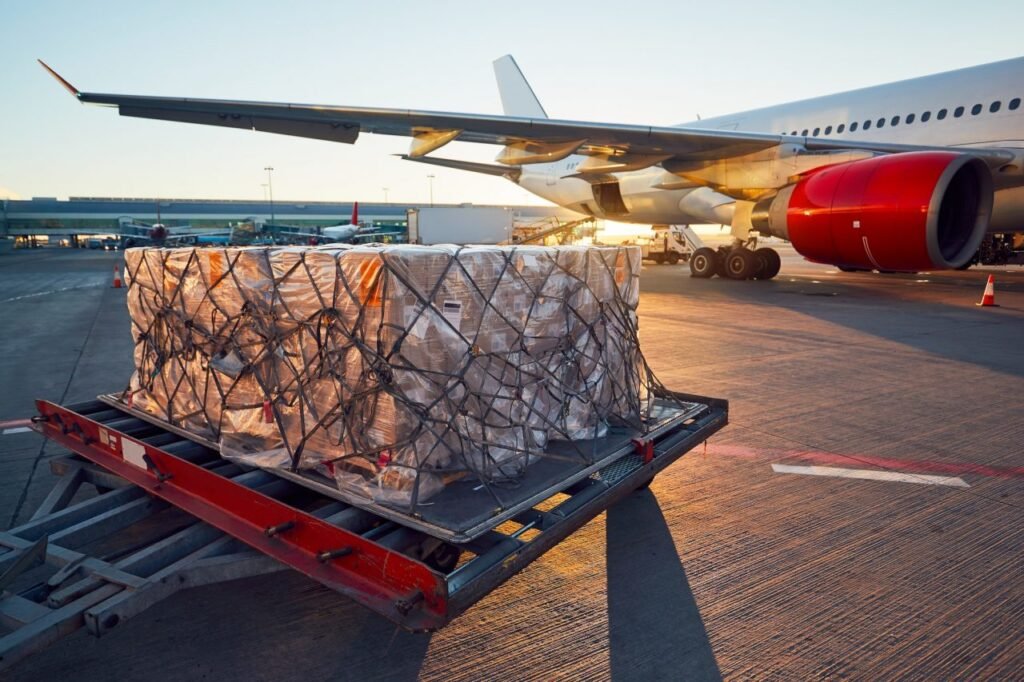
Air Freight Shipping from China to Indonesia
Expedite your urgent shipments with our air freight services, ensuring your business stays on schedule.
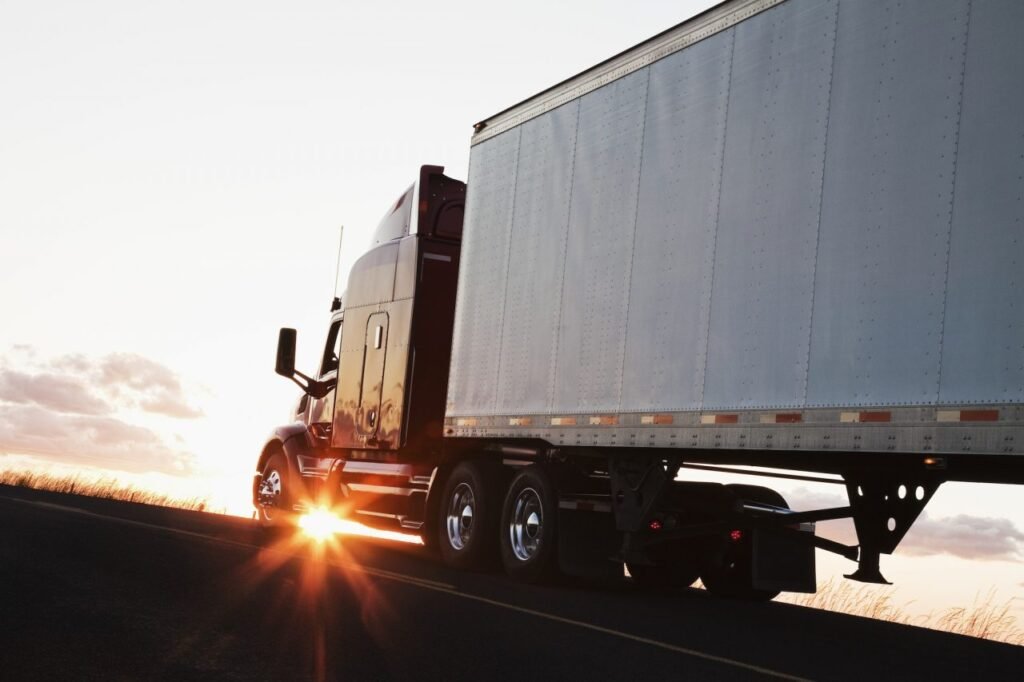
Door to Door Shipping from China to Indonesia
Experience hassle-free shipping with our door-to-door service, covering all logistics from pickup to delivery.
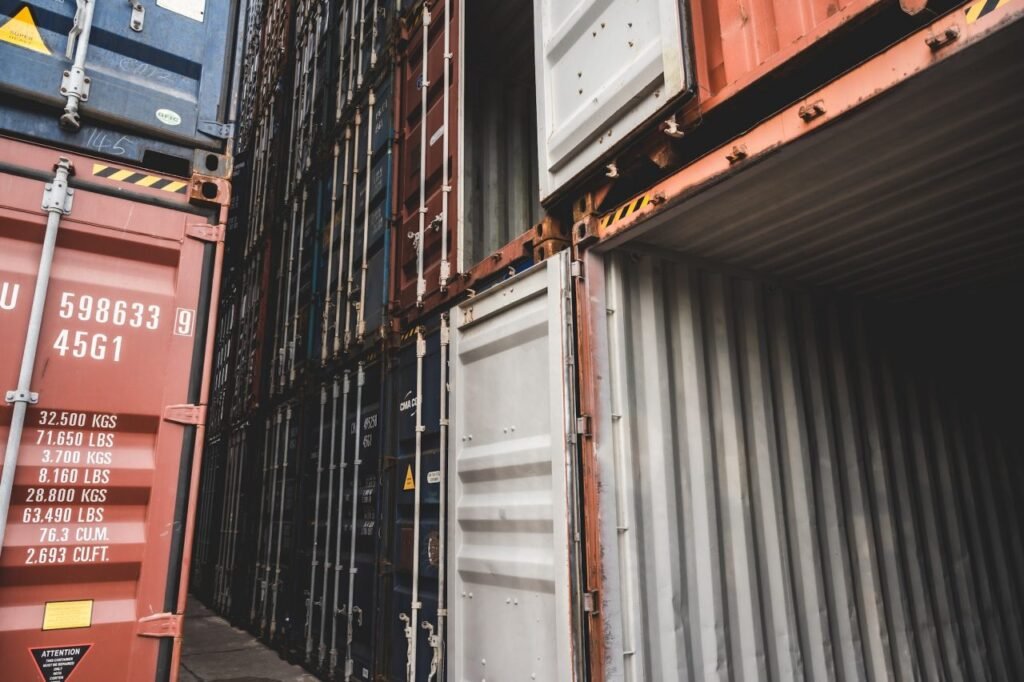
Cheapest Shipping From China to Indonesia
Maximize your budget with our affordable shipping solutions, designed to deliver cost-effective and reliable transport.
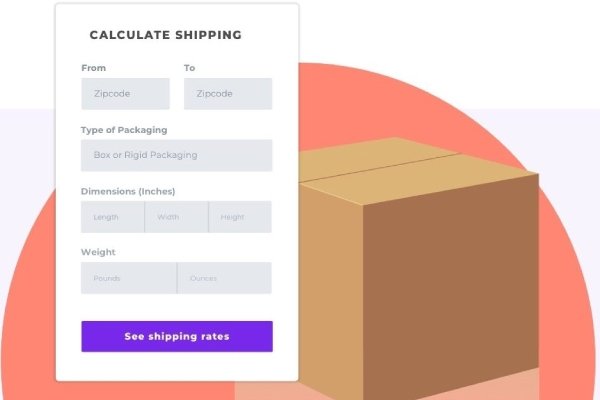
How long/much Shipping from China to Indonesia
Plan effectively with our clear and upfront information on timelines and costs, empowering your business decision-making.
FCL Shipping From China to Indonesia
Mbmlog’s FCL Shipping service can secure your large shipments with Full Container Load (FCL) shipping, ensuring your cargo travels together without disruptions, perfect for bulk goods needing robust protection.
LCL Shipping From China to Indonesia
Benefit from the flexibility of Less than Container Load (LCL) shipping, which allows you to send smaller shipments more frequently, helping manage inventory effectively without the need to fill a full container.
Additional services for shipping from China to Indonesia
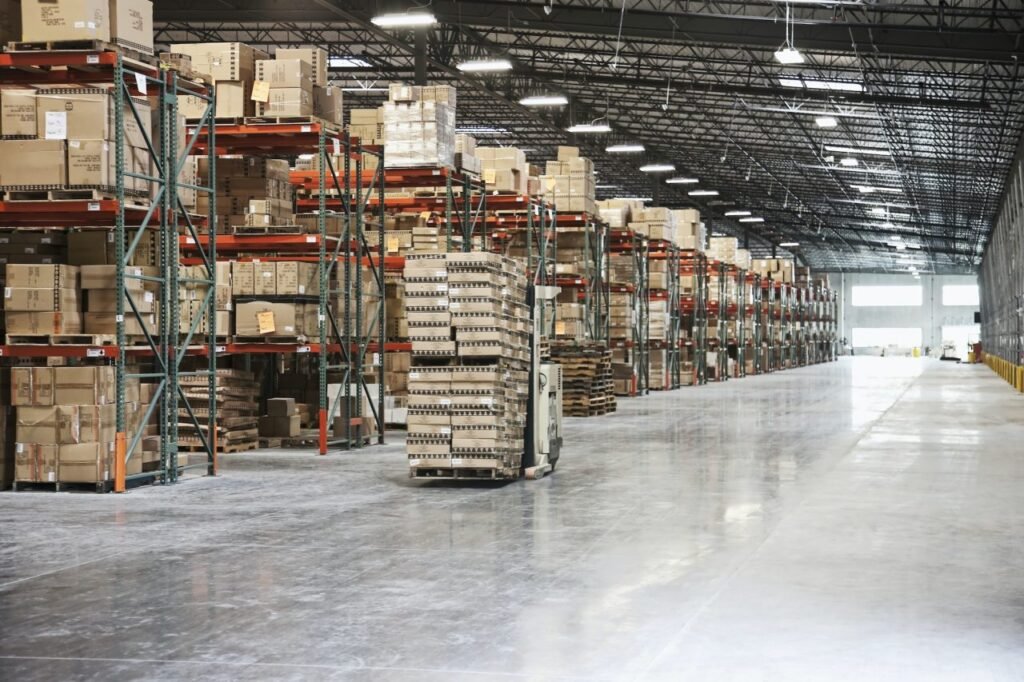
Pickup & Delivery
Streamline your logistics with our reliable pickup and delivery services, ensuring timely and efficient transportation from your doorstep directly to the destination, enhancing operational speed and reliability.
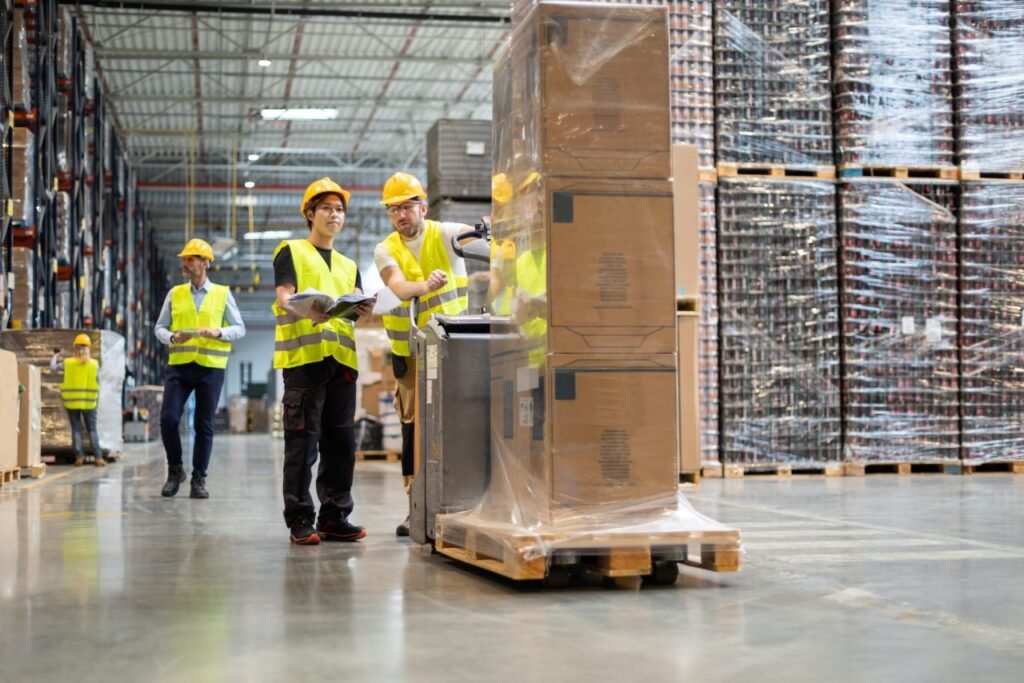
Warehouse
Utilize our secure and scalable warehousing solutions to safely store your goods, offering flexible storage options that adapt to your business needs, helping optimize inventory management and accessibility.
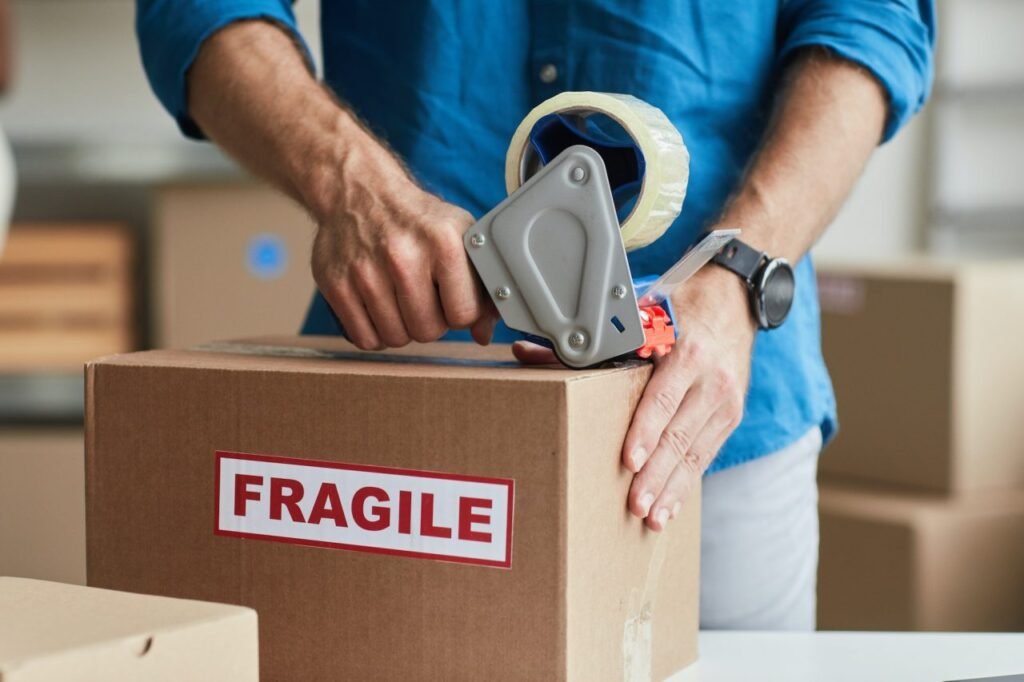
Cargo Insurance
Protect your investments with comprehensive cargo insurance, providing financial security and peace of mind against potential transit damages or losses, ensuring smooth and risk-free shipping operations.
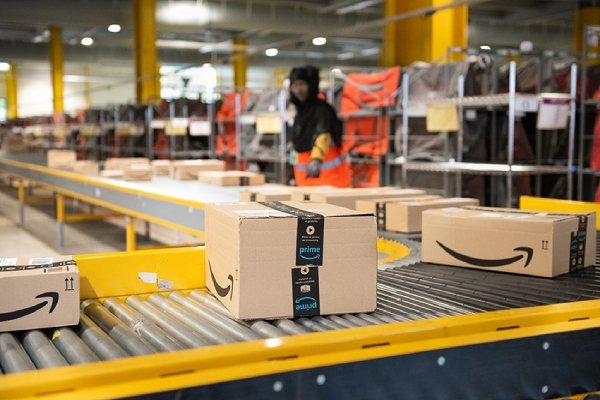
Shipping to FBA Warehouse
Facilitate seamless integration with Amazon’s network through our specialized shipping services to FBA warehouses, optimizing your fulfillment strategy, reducing handling times, and boosting your sales potential.

Custom Clearance
Expedite your international shipments with our expert custom clearance services, minimizing delays and ensuring compliance with all global trade regulations, simplifying your import/export processes.
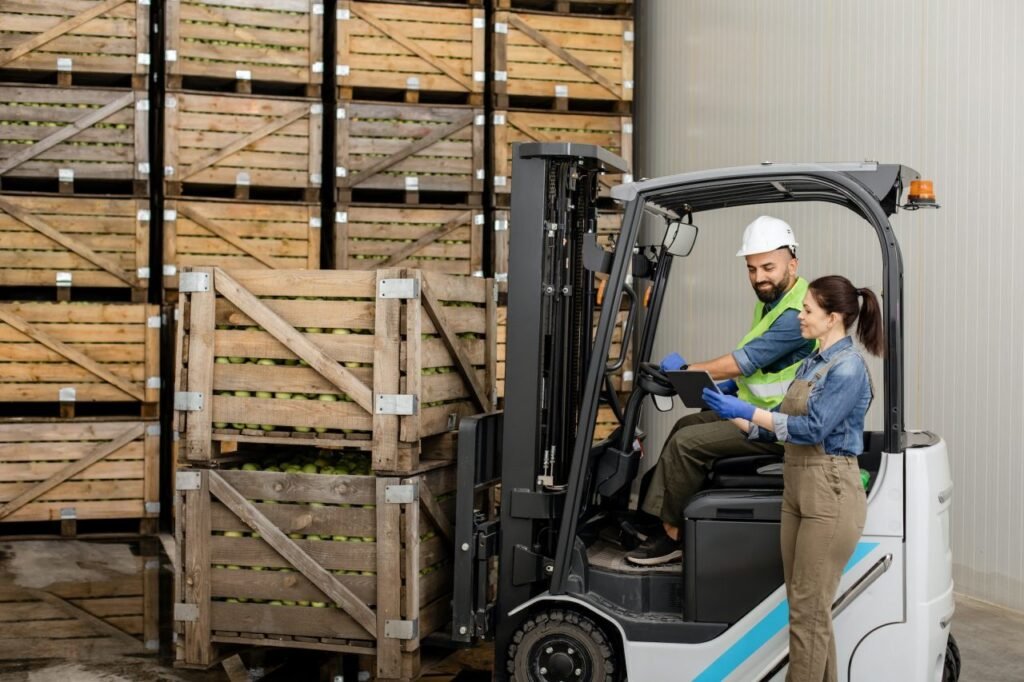
Loading Inspection
Ensure the quality and condition of your goods with our thorough loading inspections, securing shipment integrity and enhancing overall customer satisfaction by preventing potential issues during transit.

Express Shipping
Accelerate your delivery times with our express shipping options, ideal for urgent shipments that require fast and reliable service, helping you meet tight deadlines and exceed customer expectations.
Why Choose MBM ?
Experience the benefits of smooth moving
By choosing Mbmlog, you gain competitive pricing, reliable and timely deliveries, and 24/7 expert support. Benefit from our 20 years of experience, seamless customs clearance, and free warehouse storage, ensuring your logistics are efficient, cost-effective, and worry-free.
20 Years Expertise
Mbmlog offers unparalleled logistics solutions. Our extensive experience ensures efficient, reliable services tailored to meet your diverse shipping needs.
Free Warehouse
Enjoy up to 30 days of free warehouse storage with mbmlog. Our secure, well-organized facilities ensure your goods are stored safely.
24hx7 English Speaking Expert Supports
We provides 24hx7 English-speaking expert support, ensuring seamless, efficient communication and immediate assistance for all your logistics requirements.
Cargo Insurance
Our company offers comprehensive cargo Insurance services, protecting your shipments with tailored insurance options, ensuring safety and peace of mind during transit.
On Tracking Services
Mbmlog's on tracking services provide real-time updates on your shipments, ensuring you always have accurate information about your cargo's status.
Professional Custom Clearance
Our professional custom clearance services guarantee smooth, efficient processing. Our expert team handles all documentation, ensuring compliance with regulations.
